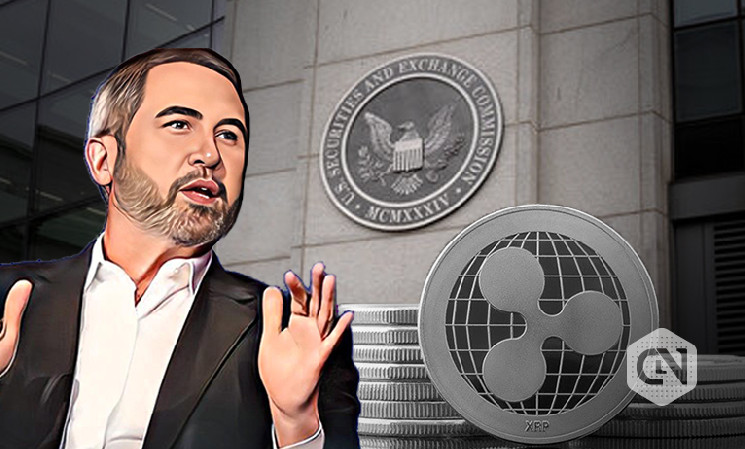The Securities and Exchange Commission (SEC) is one of the entities allegedly supposed to collect a 2 billion dollars sum in fines and penalties against Ripple Labs as described by Stuart Alderoty, Ripple Industries Chief Legal Officer, in his X post; the words were used as a lead in of the recent legal developments between SEC and Ripple Narrative on the regulatory challenges.
Alderoty slammed SEC on its method of working, saying that they have been doing everything “ahead of the inquiry,” including the commission of sub-standard and illogical statements. He stated that Ripple is scheduled to submit its formal reaction to the SEC by next month and that the primary intention of the SEC seems to be to reprimand not only Ripple but all of the crypto community as well. The SEC’s legal representative called into question what he seizes as the commission’s plan to dampen down the effects of this court case on Ripple and other relevant parties to the business.
Reiterating Alderoty’s feelings, Ripple CEO Brad Garlinghouse took to X, emphasizing the unprecedented nature of such a stipulation put by the SEC. However, the case presented no allegations or findings of fraud and recklessness. Garlinghouse spoke of revealing the true intentions and actions of the SEC in their following response, referring to the legal boundaries the regulatory body had crossed. To strengthen his point against the SEC’s stand, he used the example of the DEBT Box case, where Judge Robert Shelby charged the organization with misconduct and abuse of power.
As you will see when the SEC’s brief is made public tomorrow, they ask the Judge for $2B in fines and penalties. 1/4 https://t.co/HM8dBbn7lp
— Stuart Alderoty (@s_alderoty) March 25, 2024
The SEC has not issued any statements in support of the accusations, as the filing is subject to confidentiality restrictions and will be released to the public on Tuesday. This legal brut is a product of a wider jurisdiction war that focuses on the legal classification of Ripple $XRP token sales. Last year, Judge Analisa Torres, in a case of some significance, got a differentiation between Ripple’s programmatic and institutional sales of $XRP tokens.
Nevertheless, for what purpose did the former not entitle Ripple to act outside of disclosure obligations, while the latter did, delivering a blow to the SEC’s claims against Ripple?
The long battle between SEC and Ripple has been multi-faceted, and each step of the way took place over the years, with the crypto legal discourse growing bigger and riveting developments that shaped the matter of cryptocurrency regulation and asset classification.
In particular, the accumulation of energy throughout 2018 that saw the SEC abandon the application of criminal proceedings against ripple executives Garlinghouse and the company-founder Chris Larsen suggests a distinct legal set-up that becomes more sophisticated over time as cryptocurrency evolves further.
 cryptonewsz.com
cryptonewsz.com
